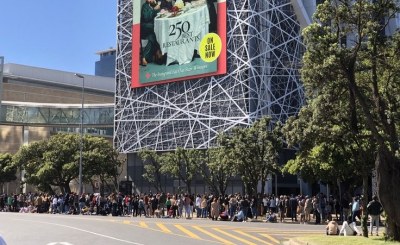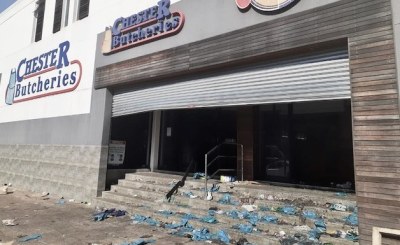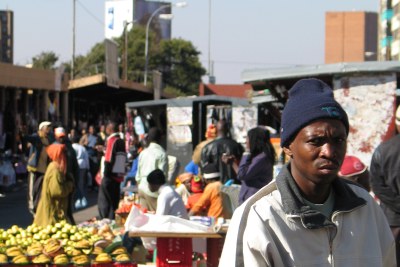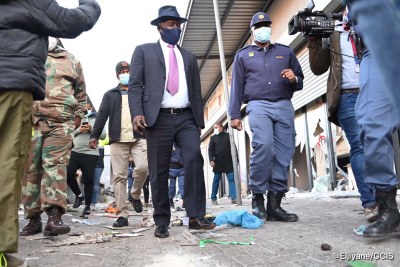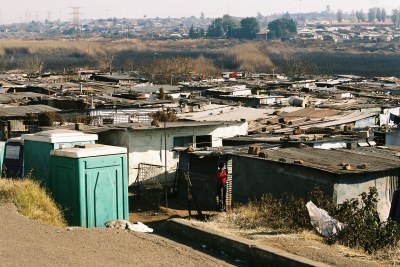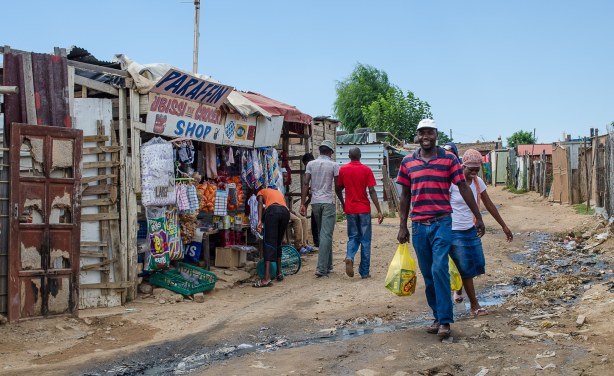-
South Africa: Hundreds Queue in Cape Town City Centre in Hope of a Job
GroundUp, 14 September 2023
Mostly young people stand in line for hours Read more »
-
South Africa: The Fault-Lines of the World's Most Unequal Society
allAfrica, 16 July 2021
Amid the explosive cocktail of ingredients which contributed to the outbreak of looting and burning in South Africa this week, new fault-lines running through a society divided by… Read more »
-
South Africa: President to Conduct Oversight Visit to KwaZulu-Natal
Govt of SA, 16 July 2021
President Cyril Ramaphosa will this morning, Friday, 16 July 2021, undertake an oversight visit to Ethekwini, KwaZulu-Natal, to assess the impact of recent public violence and the… Read more »
-
South Africa: Food Riots Show the Need for a Basic Income Grant
New Frame, 13 July 2021
As rioters target supermarkets, activists call on the government to help those who cannot survive amid rising prices and mass unemployment. Read more »
The Fault-Lines of the World's Most Unequal Society
Amid the explosive cocktail of ingredients which contributed to the outbreak of looting and burning in South Africa this week, new fault-lines running through a society divided by class as well as by race were on display as never before.
The unrest may have been triggered by the jailing of former president Jacob Zuma and exacerbated by factors ranging from orchestrated incitement by pro-Zuma forces, to hardships caused by Covid-19 job losses, to wanton criminality. But as rioting spread from Zuma's home province of KwaZulu-Natal to the economic heartland of Gauteng, the effects of extreme economic inequality in post-apartheid South Africa became apparent. South Africa has long been known as a nation of income inequality, in which a few top earners enjoy a high proportion of the country's income, in contrast to the small proportion earned by the vast majority.
The latest World Bank figures show that it is the worst in the world. The official unemployment rate, driven to a record high by one of the strictest Covid-19 lock-downs in the world, was 32.6% in the first quarter of this year and 46.3% among youth under 35, writes allAfrica's John Allen.
InFocus
-
This past week, chaos erupted on the streets of KwaZulu-Natal province, spilling over to economic capital Gauteng province. While many experts attribute these actions to poverty, ... Read more »
-
The media frequently portray young people excluded from wage work as inactive, aimless and alienated from mainstream society. This image feeds into fears of crime, violence and ... Read more »
-
Chairperson of the African Union Commission Moussa Faki Mahamat has called for the urgent restoration of order, peace and stability in South Africa and the full respect for the ... Read more »
-
South Africa's economic policies have been moving to the right, embracing big business and ignoring workers and jobless people. Why does no organised voice speak out against this, ... Read more »
